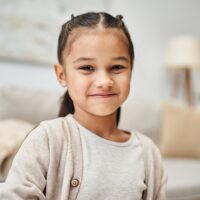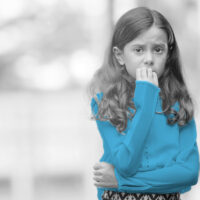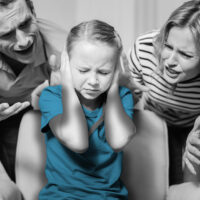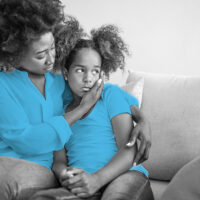Children and Young People
-

Fostering Resilience in Challenging Times: Practical Guidelines for Pediatric Mental Health Professionals
In today’s complex youth mental health landscape, professionals play a key role in equipping young people with the skills to navigate adversity. This two-part masterclass, led by world-renowned pediatric neuropsychologist Dr. Sam Goldstein bridges cutting-edge research with practical applications.
- Event type
- Masterclass
- Location
- LIVE STREAM
-

From Valencia to Understanding the Mental Health Impacts of Floods on Children and Young People
Floods are the most common type of natural disaster, with 1.81 billion people facing significant flood risk worldwide, particularly in low- and middle-income countries. Among those affected, children and young people are especially vulnerable due to limited coping strategies compared to adults and high dependence on caregivers. Despite this, research on the impacts of floods on their mental health remains scarce.
Read more -

Creating Positive Change through Self-Awareness and Expression
Children’s Mental Health Week (3 – 9 February 2025) serves as a fantastic opportunity to look further at how we can empower, equip, and give a voice to children and young people, as well as encourage positive change with regards to their mental health and well-being.
By focusing on ‘Know Yourself, Grow Yourself’, alongside our vision of ‘Sharing best evidence, improving practice’, and our mission to ‘Improve the mental health and wellbeing of young people aged 0-25’, we encourage you to focus on how we, as a society, can help encourage children and young people to feel empowered in sharing their experiences in order to improve children’s and young people’s mental health and wellbeing.
Read more -

Advancing the Understanding and Treatment of Anxiety Disorders in Young People – Emanuel Miller International Conference 2025
Bookings closed
- Event type
- Emanuel Miller
- Location
- LIVE STREAM
-

Brain differences in children who show symptoms of avoidant/restrictive food intake disorder (ARFID)
Magnetic resonance imaging (MRI) scans of children showing symptoms of avoidant/restrictive food intake disorder (ARFID) show differences in certain brain regions relative to children without ARFID symptoms. Findings from this work serve to improve our general understanding of ARFID and may help inform on ARFID-related services or our understanding of ARFID.
Read more -

Words Matter: Understanding, Impact, and Prevention of Childhood Verbal Abuse
Set of three webinars on Childhood Verbal Abuse (CVA). This is characterised by adults shouting, yelling, denigrating, and verbally threatening the child. These types of adult actions can be as damaging to a child’s development as other currently recognized and forensically established subtypes of maltreatment such as childhood physical and sexual abuse.
- Event type
- 3 x90min webinars
- Location
- LIVE STREAM
-

Responding to sibling sexual abuse – putting research into action
This workshop will outline current knowledge and evidence in the sibling sexual abuse field and look at how that knowledge can be used to inform how we positively support a family’s journey, from identification of harm, safety planning and assessment, through to therapeutic intervention, case closure and aftercare support
- Event type
- Live Stream
- Location
- LIVE STREAM
-

Breaking the Silence: A different way to work alongside young people in practice and research
How are children and young people getting on in the UK? Studies suggest that the school system is a significant negative factor in the lives of many of our CYP. Whilst some enjoy school, many others experience it as psychologically harmful and this is reported, consistently, by young people and families. Despite this, CYP have almost no say in the structures and aims of education and their voices are silent when it comes to implementing national policies. In response, the social enterprise States of Mind launched the Breaking the Silence project, in partnership with the Institute of Education, UCL, focusing on co-creating new insights and solutions around education and mental health through Youth Participatory Action Research (YPAR).
Read more -

Why I didn’t send my child back to school after the pandemic: The Rise in Home Education
‘Why I didn’t send my child back to school after the pandemic: The Rise in Home Education’ will be led by Tami Alikhani. This is webinar is organised by ACAMH’s Adverse Childhood Experiences (ACEs) Special Interest Group.
- Event type
- Talk with Q&A
- Location
- LIVE STREAM
-

Story Stems – a window into a child’s internal world
This webinar will cover the Story Stem Assessment Profile (SSAP) and its use as an assessment of a child’s attachment and internal representations. The SSAP consists of 13 narrative stems, to which the child provides their own story completions; information is thus gained directly from the child in a non-threatening context.
- Event type
- Webinar
- Location
- LIVE STREAM